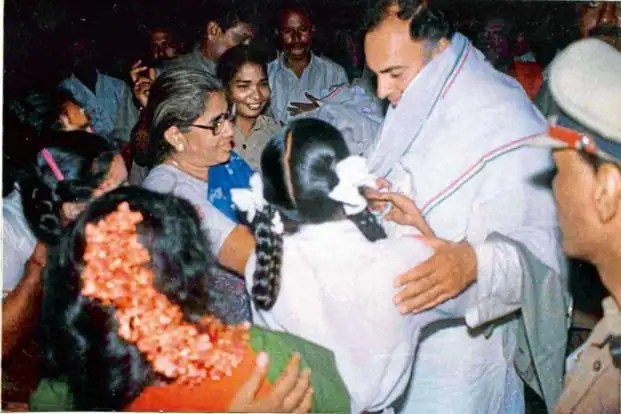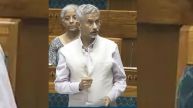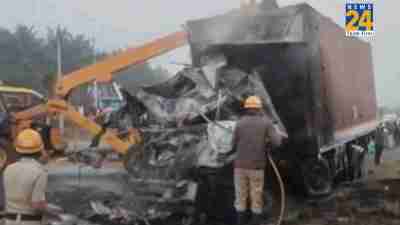On the evening of May 21, 1991, at 10:21 PM, a devastating explosion occurred at the rally in Sriperumbudur, Tamil Nadu. The blast resulted in widespread panic, with mutilated bodies scattered amidst the smoke. Sixteen individuals lost their lives, and many others sustained serious injuries. Bhishma Narayan Singh, the then Governor of Tamil Nadu, confirmed that former Prime Minister Rajiv Gandhi was among the deceased.
The assassination was orchestrated by the Sri Lankan rebel organization, the Liberation Tigers of Tamil Eelam (LTTE). In the election year of 1991, Rajiv Gandhi was confident of winning and reclaiming his position as Prime Minister. After campaigning in Visakhapatnam, Andhra Pradesh, he flew to Chennai and proceeded to Sriperumbudur in a white Ambassador car, accompanied by Tamil Nadu Congress leaders and journalist Nina Gopal, who conducted his final interview.
Concerns about Rajiv Gandhi’s security were well-founded, as there were inadequate measures in place at Sriperumbudur. The rally site had poor lighting and minimal separation between the VIP area and the general audience. Despite the poor security, Rajiv permitted people to approach him. Among the crowd was LTTE suicide bomber Dhanu, who carried a sandalwood garland and wore a vest laden with RDX. Moments before the explosion, Rajiv conversed with Jayanthi Natarajan, who was translating for him. She did not comprehend his final words to her before the bomb detonated, killing 16 individuals, including Rajiv Gandhi.
Also Read: IndiGo Flight Turns Back Due To Overbooked Passenger Standing At The Back
Journalist Nina Gopal, present at the scene, initially mistook the explosion for fireworks but quickly realized it was a bomb. She described the harrowing scene, with bodies charred and dismembered. Rajiv Gandhi’s body was later identified by his Gucci watch and intact white Lotto shoes. Despite efforts to transport him to the hospital, Rajiv Gandhi was declared dead at the scene. His body was subsequently taken to the morgue at 3 AM. Hours before his assassination, Rajiv had remarked on the dangers faced by South Asian leaders pursuing power, drawing parallels with Indira Gandhi, Sheikh Mujibur Rahman, Zulfiqar Ali Bhutto, and Zia-ul-Haq.













